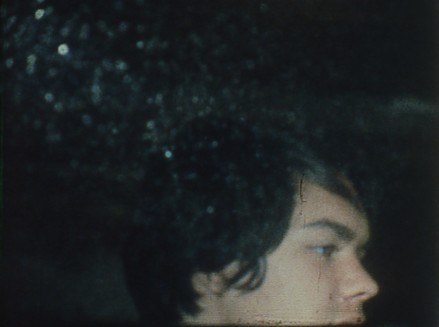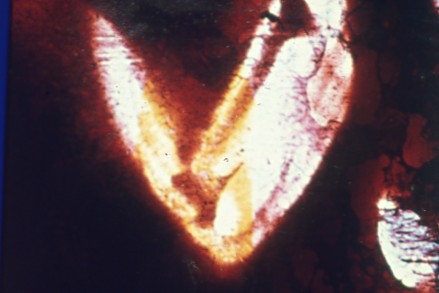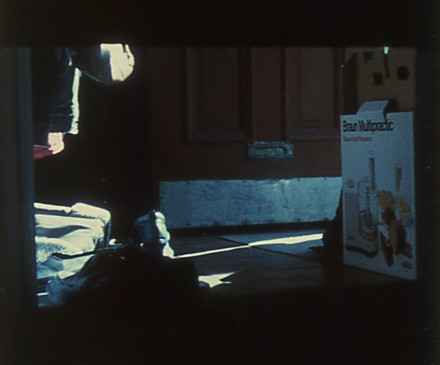
Exploding Celluloid: Three by Stan Brakhage
Films
Description
On Friday, July 21st, 2023, at 7pm, join us at the FMC Screening Room (475 Park Avenue South, 6th Floor) for three extraordinary, though often overlooked, 16mm films by the legendary Stan Brakhage: TORTURED DUST (1984), NODES (1981), and MATINS (1988)!
"Inspired by Wheeler Winston Dixon’s The Exploding Eye, an essential survey of lesser-known experimental filmmakers from the 1960s, Chris Van Horn and I share a passion for tracking down neglected feature-length and short avant-garde 16mm “films” (and we mean this in the truest sense of the word) that remain un-digitized — ones that usually reside in private collections, public libraries, and mixed-media archives. It’s with our screening series, Exploding Celluloid, that we hope to provide a broader level of accessibility to these types of under-appreciated titles, ones included within The Film-Makers' Cooperative’s vast collection and, hopefully as well, stir up some much-needed renewed interest.
For our first screening, we’ve selected three 16mm Stan Brakhage films from the 1980s: the feature-length Tortured Dust (1984), followed by the shorter Nodes (1981) and Matins (1988). Perhaps the most radical decade in the filmmaker’s oeuvre — one that included several notable experiments with sound (Kindering and Loud Visual Noises), narrative structure (the Faustfilm series), and visual legibility (the Egyptian Series and Arabics) — it's an era of his career that Chris and I find fascinating, and also rather underrepresented in the current repertory film community. While much deserved praise has been bestowed upon the hand-painted The Dante Quartet (1987), we've decided to screen the lesser-known Nodes. Likewise, Matins, which was “made on occasions of, and inspired by, Jim and Lauren Tenney's marriage,” was selected for similar reasons.
Tortured Dust, the informal final chapter of the autobiographical "Book of the Film" cycle that includes Scenes from Under Childhood (1967–70), Sincerity (1973–80), and Duplicity (1978–80), finds the Brakhage household at its breaking point. Completed only a few years before his divorce from Jane Wodening, the film paints a fraught portrait of an artist so blinded by their own ego that they recognize, all too late, that they’ve lost all that they hold dear to them. Gone is the joyous family camaraderie seen in films such as The Weir-Falcon Saga (1970), replaced now by moody adults and pre-teens who can’t even be bothered to acknowledge their father’s camera. The film’s intensely personal subject matter has kept it from being recognized as one of Brakhage's finer achievements, yet, as Tony Pipolo once eloquently put it in Artforum, 'it is precisely because Tortured Dust exhibits psychological rawness, unchecked narcissism, emotional vulnerability, and displaced eroticism that it remains an invaluable expression of an artist whose intuitive impulses as a filmmaker allowed his work to seize truths that he could not consciously fathom or tolerate.'" -Paul Attard


